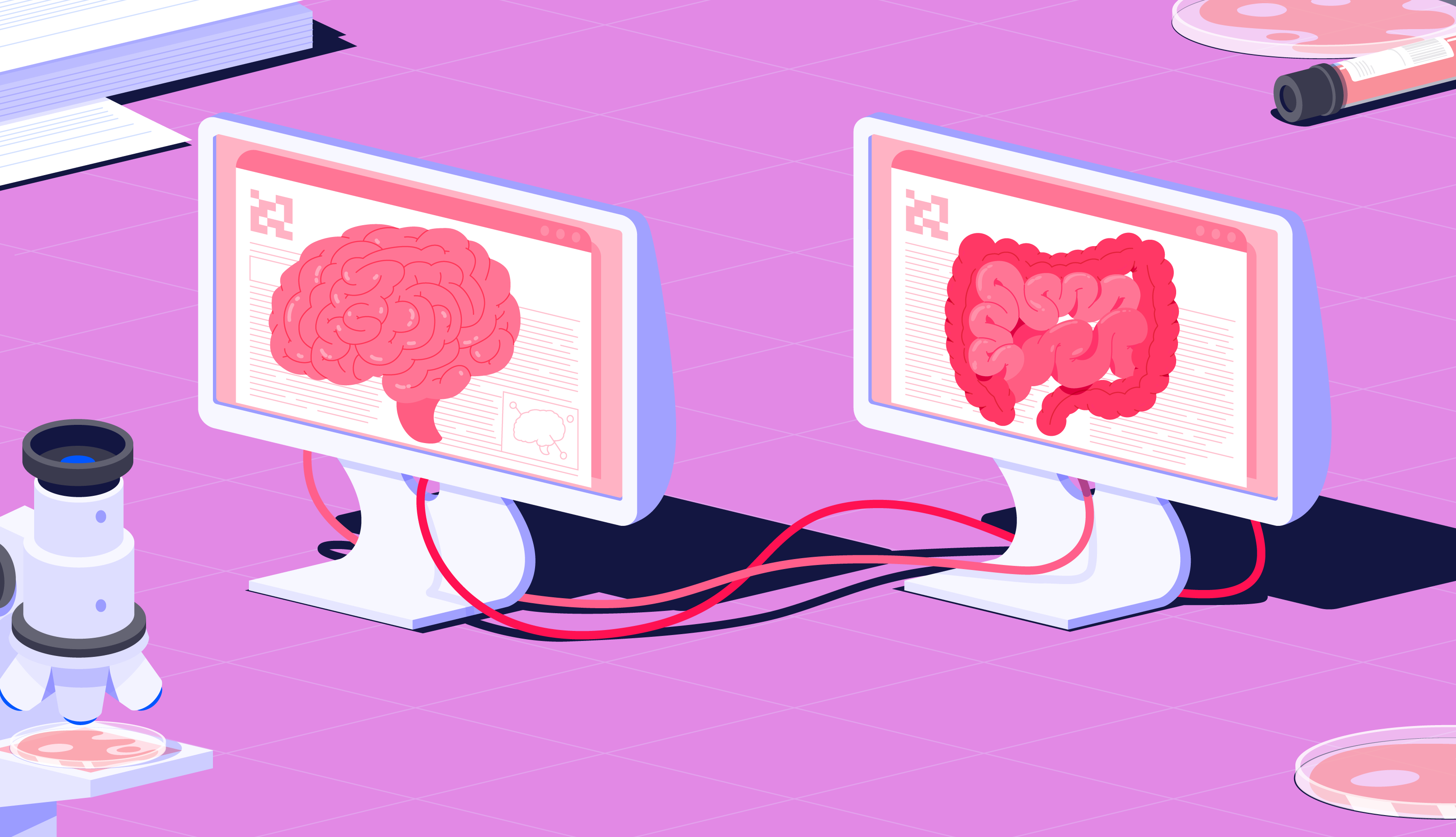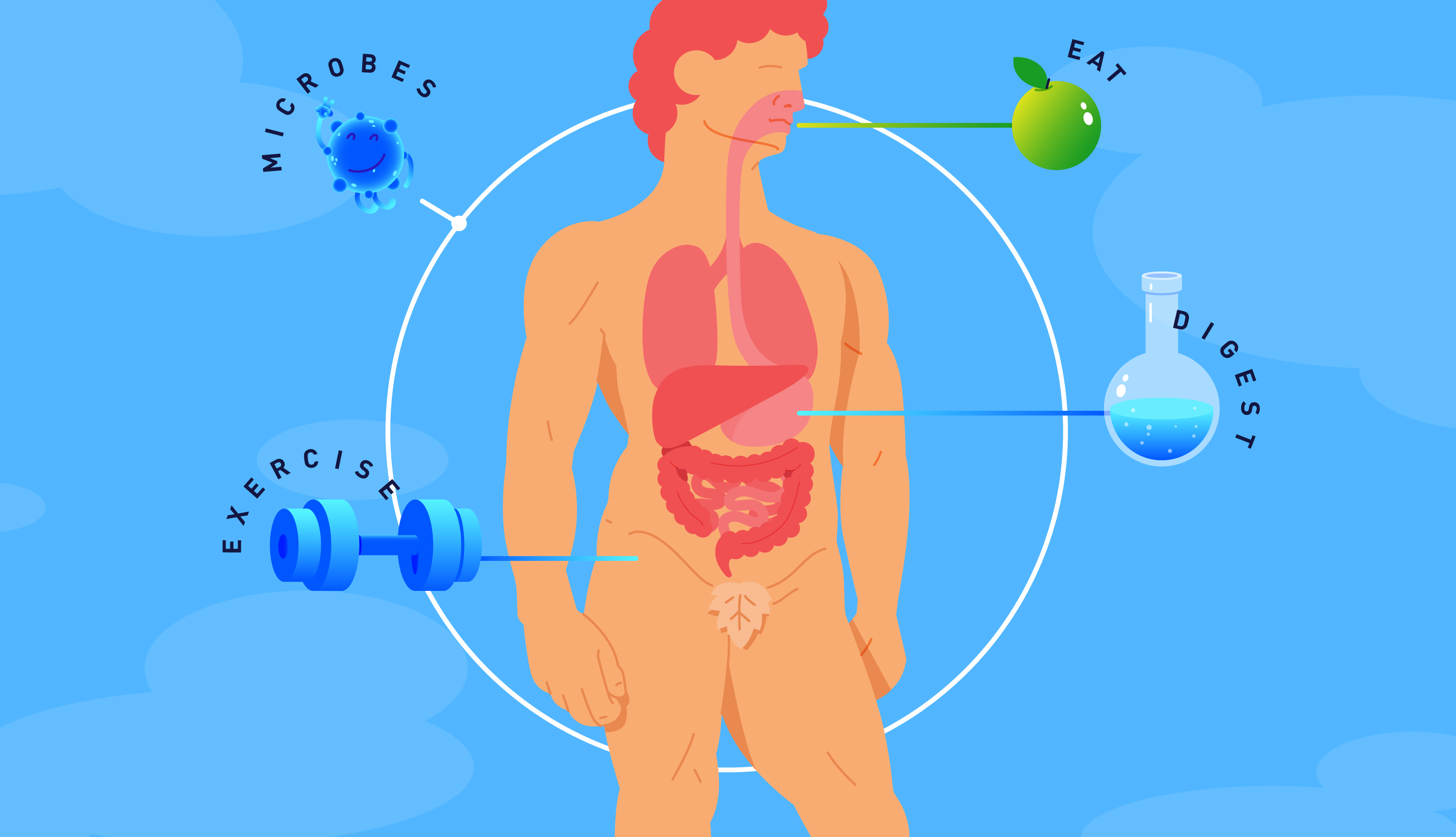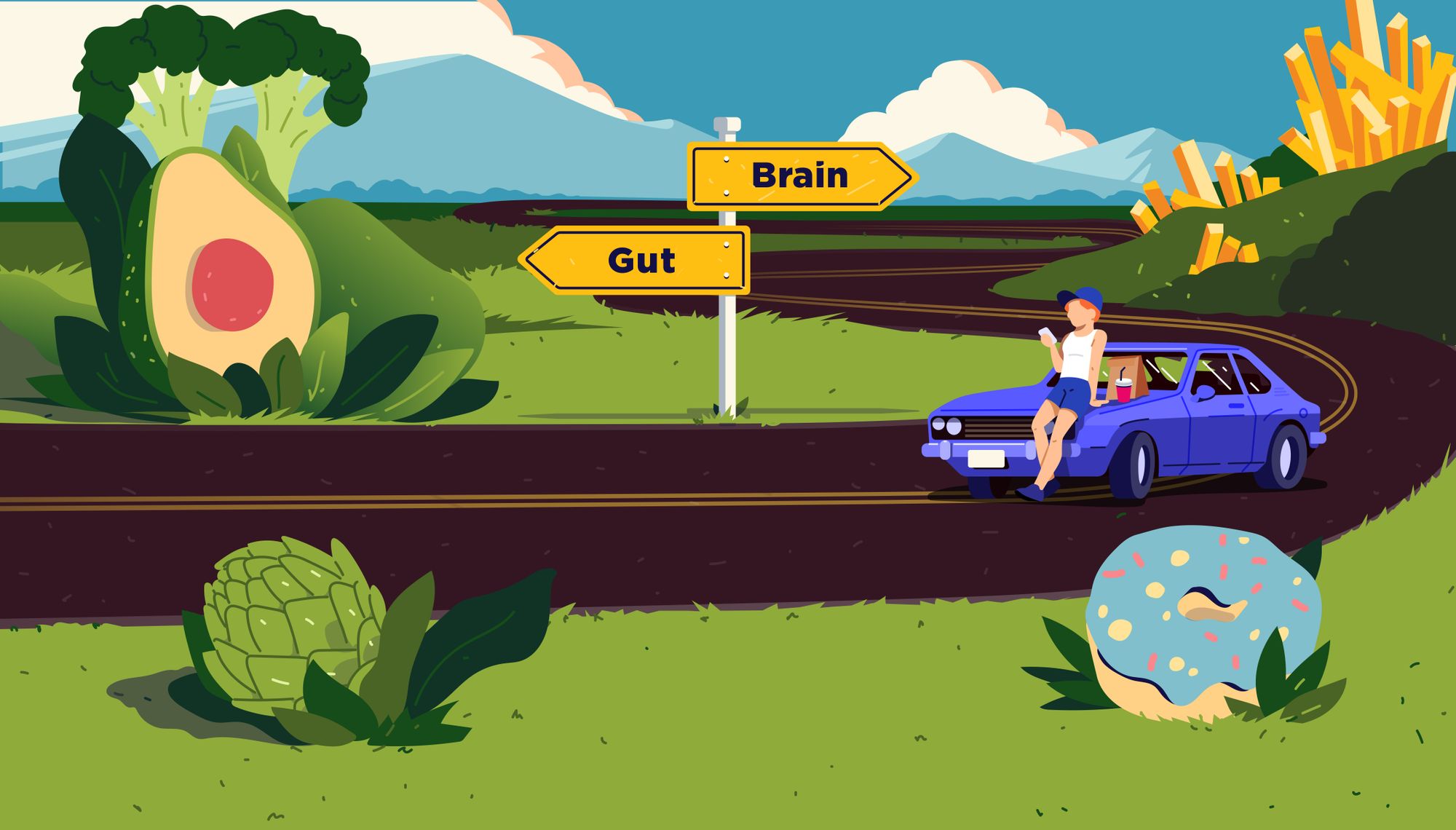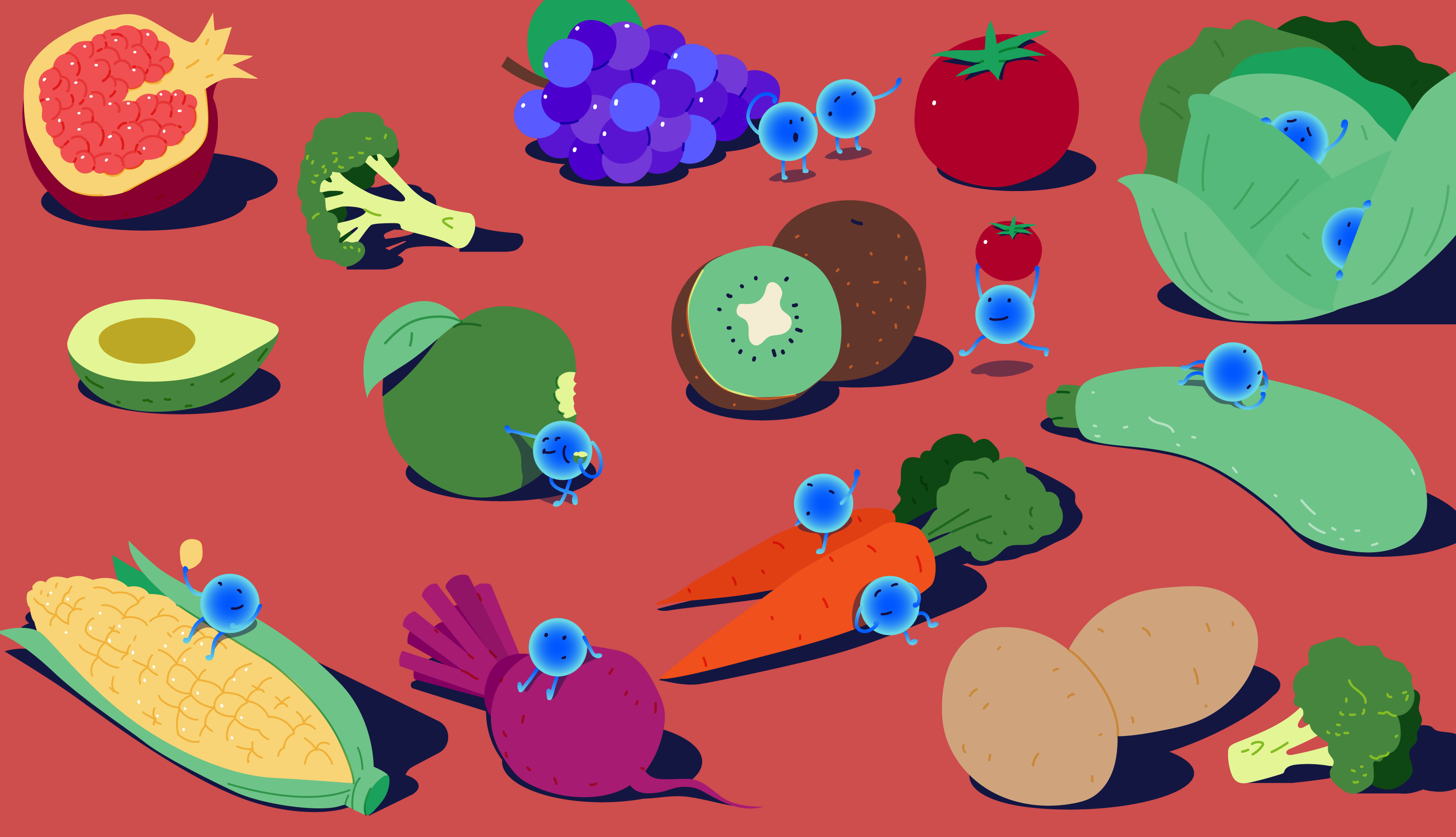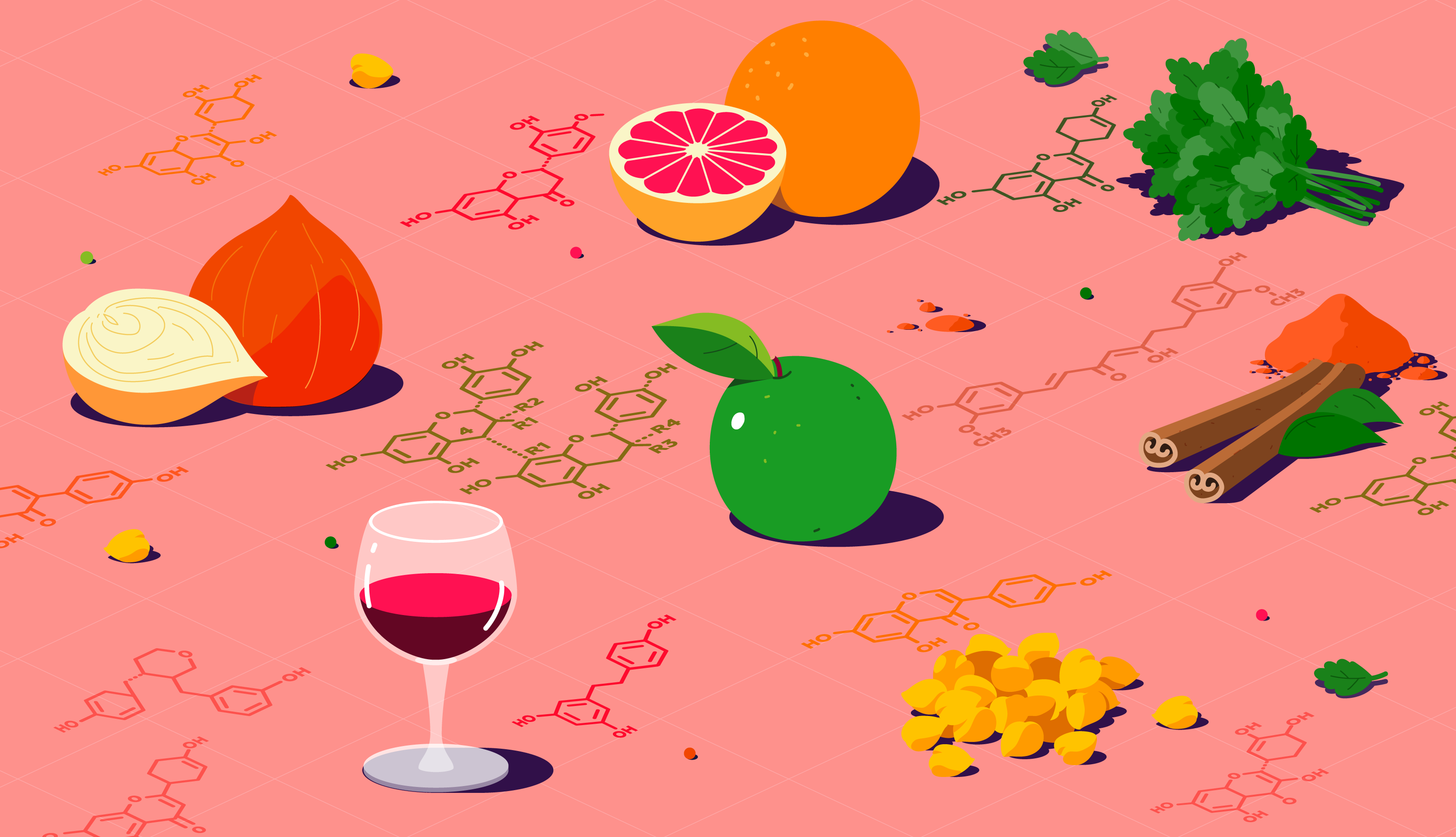Here’s what you need to know about Parkinson’s Disease and what your gut microbes have to do with protecting you against it.
Parkinson’s Disease is the second most common neurodegenerative disorder in the world. Most of us can recognise the movement issues it causes, but the disease goes beyond just movement and involves many areas of the body, including the gut.
The condition was first described back in 1817 by, you guessed it, a man named James Parkinson. He was a British apothecary who first medically defined it as a neurological disorder in his Essay on the Shaking Palsy.
Table of contents
- What is Parkinson's disease
- Signs and symptoms of Parkinson’s
- Risk factors in your environment
- The gut and your microbiome
- Eat to prevent Parkinson's
Since then, lots more research has been done, helping to define the disease as we now know it today and discover the therapeutics used to control the symptoms and its progression. Yet, there’s still no cure.
However, ongoing research has led to new discoveries, including the role and the potential benefits of the gut microbiome. In this article, we explain what Parkinson’s disease is, who is at risk, and the role of the gut in its development.
What is Parkinson’s Disease?
The disease affects a specific part of the brain, causing progressive damage and resulting in a variety of signs and symptoms that you may not be aware of.
Parkinson’s is a progressive neurological disease, in which the loss of nerve cells in the brain’s substantia nigra (responsible for movement) affects motor skills, movement, and muscle function.
The degenerative loss of neurons that produce dopamine, a neurotransmitter vital for movement, prevent normal messages that control our movement from being dispatched, and the symptoms of Parkinson’s disease become apparent. As numbers of these neurons decline, the symptoms progress, and new ones develop.
At first, researchers found abnormal deposits of a protein called alpha-synuclein in the nerve cells of patients’ brains, known as Lewy bodies. They were considered a marker of cell death and neurodegeneration.
Interestingly, Lewy bodies also appear in the dopamine-producing nerve cells of the gut long before the neurological symptoms of the disease appear, indicating that Parkinson’s may, in fact, originate there.
What are the symptoms?
There are characteristic signs of the disease, like stiffness and tremors, but there are other hidden ones too that affect many common functions.
The symptoms of Parkinson’s can differ between individuals. What one person may experience may not be the same as someone else. Equally, it’s progression may be faster in some individuals and slower in others.
Parkinson’s symptoms can be split into two categories: motor and non-motor. Motor symptoms are the ones affecting movement, while non-motor signs are often not as obvious, but can significantly affect the patient’s everyday life.
Signs and symptoms of Parkinson’s Disease
| Motor | Non-motor |
|---|---|
| tremors | pain |
| stiffness | sleep disturbances and fatigue |
| slow movements | hallucinations |
| freezing | memory issues and dementia |
| muscle cramping | speech and communication problems |
| dry mouth, difficulty swallowing |
Risk factors for Parkinson’s disease
Although no specific cause has been pinpointed, several risk factors are thought to play a role in its development.
According to researchers, your genes, environment, and ageing are all implicated in the development of this neurodegenerative disorder. The average age of onset is in a person’s late fifties, and it is usually rare in people under 50.
| Risks | |
|---|---|
| family history | exposure to pesticides and toxins |
| living in rural areas | history of depression |
Is it genetic?
Your genes are what make you unique. We inherit half of them from our father and the other half from our mother, giving us two copies of more than 20,000 genes. Together, these pairs make up your genome and influence who you are (that’s right, your parents are somewhat to blame).
It’s little changes in your genome that make you different from your brother, sister, friends, and coworkers. But some changes in your genes, known as gene variants (or ‘mutations’), can cause proteins to work differently than expected. And in some cases, these changes can increase the risk of a specific illness or disease.
Parkinson’s is no different, and a big question is, does it run in families? In short, for many people, the disease is idiopathic, a fancy medical term meaning there is no known cause. So it just happens, but for a small minority, there is a genetic link.
Although it’s rare, there are some people who carry specific gene variants that can significantly increase the risk of developing Parkinson’s. People who develop the condition when they are young are more likely to have a genetic link. There are several genes which may show changes associated with the development and progression of the disease earlier in life.
However, just because you may have a genetic predisposition doesn’t mean you will go on to develop it. It may increase your risk, but environmental factors can also protect you or make you more susceptible to the disease.
☝️TIP☝️The Atlas DNA Test checks for gene variants and external factors known to increase an individual’s risk of Parkinson’s disease.

What do toxic chemicals have to do with it?
Genetics are responsible for only approximately 15% of Parkinson’s cases, suggesting there is an important interplay between genes and environmental factors. Exposure to toxic chemicals is just one example.
Pesticides are a common feature in many industries. In particular, prolonged exposure to agricultural pesticides can cause neurological changes in the human brain. These changes interfere with cells in such a way that they imitate those genetic variations which are known to cause the disease itself.
And so, people who are exposed to these chemicals are up to 2.5 times more likely to develop the disease. Some heavy metals and the abuse of illicit drugs have also been implicated. All these toxins can cause dopamine-producing neurons to die, reducing levels of this neurotransmitter, and ultimately resulting in the onset of the disease.
Other factors
Alongside your exposure to toxic substances and whether you have any relatives with the disease, we also want to know about your appendix. You know, that little tubular pouch at the beginning of your large intestine.
Most of us only really notice it when someone gets appendicitis, but research now shows that having your appendix removed can somewhat increase your protection from Parkinson’s. But that doesn’t mean you should ask a doctor to take it out, it’s a part of you and should remain so as long as it’s healthy.
The gut, your microbiome, and Parkinson’s Disease
People with Parkinson’s often report digestive symptoms well before they are diagnosed with the disease, and it could be linked to the gut microbiome.
Back in 2003, neuroanatomist, Heiko Braak, suggested that Parkinson’s Disease may actually start in the gut after studying post-mortem samples of people with the disease. Lewy bodies were present not only in the brain, but in the gut’s nervous system too.
Almost 17 years later, it’s still not clear how they get there, but there are many interesting theories. One of which is that alpha-synuclein (found in Lewy bodies) travels from the gut along the vagus nerve to the brain.
That still doesn’t explain what’s going on in the gut, but the microbiome may just be the reason. In mouse studies, scientists have found that specific bacterial proteins might cause the alpha-synuclein to clump and accumulate in both the gut and the brain.
Another theory is that our gut microbes could cause the overproduction of alpha-synuclein, leading to some of the movement issues associated with the disease. It’s also been noted that patients with Parkinson’s have specific microbiome features that may be involved.
The role of inflammation
Over 200 years ago, James Parkinson noted that some people who had the condition he called the “shaking palsy”, also had constipation. This is still true today, and the list of symptoms has grown to include several digestive issues such as nausea.
Often, these signs fly under the radar of the media, and so you may not automatically associate them with a neurological disorder. Equally, it’s a little-known fact that people with inflammatory bowel disease (IBD – Crohn’s and ulcerative colitis) may be at a greater risk of Parkinson’s than the average person.
Again, the mechanisms behind this are still under investigation, but one theory is that if the gut is inflamed consistently over a long period, it could increase alpha-synuclein levels. Yet another excellent reason why the gut-brain axis shouldn’t be underestimated.
Moreover, inflammation in the gut and other places has consequences for the central nervous system. In people with Parkinson’s, studies have found evidence of inflammation throughout the body with elevated levels of proinflammatory molecules (cytokines) in the colon, brain, and central nervous system that may be linked to the disease state.
Neurotransmitters are chemical messengers that turn thought into action
Changes to microbial composition in the gut can cause reductions in the beneficial metabolites produced, including short-chain fatty acids. In particular, butyrate, a short-chain fatty acid that maintains the gut lining and protects against inflammation, is lower in Parkinson’s patients.
Studies also show that butyrate-producing bacteria are also less abundant. That’s important because these microbes keep gut inflammation at bay and strengthen your intestinal lining. What’s more, it communicates with the enteric nervous system (in your gut) to keep things moving through your colon.
So, with less butyrate comes less bowel movements and yes, you guessed it, constipation. Up to 30% of people with the disease experience gastrointestinal symptoms, and feeling constipated is one of them, alongside nausea and vomiting.
But there’s good news. If the disease does start in the gut, future interventions targeting this organ, rather than the brain, may even help prevent or even manage Parkinson’s. And it could even be as simple as our diet!
Eat to prevent Parkinson's disease
Probiotics, prebiotics, and polyphenols could all be helpful in tackling the neurological disease. After all, your gut and brain are well connected.
Probiotics
Probiotics are good bacteria which, when they enter the body, have several benefits on our health. These bacteria can live in the gut, where they thrive on a fibre-rich diet, but you can also get them from fermented foods like yoghurt, kefir, and sauerkraut, as well as supplements.
Probiotics can benefit the body because they can ward off dysbiosis and inflammation in the gut by balancing the composition of your gut microbiome and keeping your colon at the right pH. If your gut microbes are imbalanced, they can contribute to inflammation and chronic dysbiosis, which are found in many common diseases, including Parkinson’s.
Research shows that certain strains of probiotic bacteria, such as Lactobacillus acidophilus, significantly reduce the proinflammatory cytokines and increases anti-inflammatory ones. These are promising results collected from a study of patients in the early stages of Parkinson’s.
Other studies found that feeding Parkinson’s patients fermented milk containing Lactobacillus casei Shirota could help alleviate the gastrointestinal symptoms associated with the disease. After five weeks, patients reported better stool consistency, less bloating, and less abdominal pain.
The use of probiotics in the treatment and management of Parkinson’s is a promising avenue for research, but even eating specific foods can help balance the gut microbiome and promote its beneficial functions.
Prebiotics
So, what’s the deal with prebiotics and Parkinson’s disease? As we’ve mentioned, gut dysbiosis is an issue for these individuals and it’s linked to digestive issues. Prebiotics can help with inflammation, constipation, and other problems by nourishing good bacteria with health-promoting functions.
And then, of course, there’s the reduced abundance of butyrate-producers in Parkinson’s patients and prebiotics can correct this. So eating prebiotic foods like vegetables, fruit, grains, and legumes can help butyrate-producing bacteria thrive within the gut and increase the amount of butyrate they produce.
Polyphenols
These phytonutrients help defend the body against damage by free radicals, not just in the gut, but in your whole body, and even your brain. Their protective role is both direct and indirect, because they can regulate the gut microbiome composition and keep it healthy.
Polyphenols actually promote the growth of probiotic bacteria, enhancing the health of your gut. That’s because certain species produce good things like short-chain fatty acids and vitamins, while others increase the strength of your gut lining.
Polyphenols are the most abundant antioxidant in the human body, with flavonoids and phenolic acids being the two main types. Green tea polyphenols are well publicised for their numerous health benefits and have been used in Chinese medicine for centuries.
They have been well-researched for their neuroprotective benefits, and it is believed that they can protect the dopamine-producing nerve cells in the brain from cellular death. They also protect them from oxidative stress, a huge contributing factor for their loss.
Probiotics, prebiotics, and polyphenols all have the potential to protect us from Parkinson’s disease. That’s because they can positively affect the composition of the gut microbiome, strengthen the gut barrier, and reduce the inflammatory response, all of which are implicated in the development and progression of the disease.
Remember
Parkinson’s is the second most common neurodegenerative disease behind Alzheimer’s. At first glance, it’s easy to mistake it for a condition which only affects movement, but behind this façade is a combination of symptoms which can make everyday life difficult, and eventually become fatal.
The condition has been recognised for over 200 years and although there is no current cure, there are medications which help to slow its progression. Although it is characterised by the presence of Lewy bodies in the brain, more recently it has been hypothesised that the disease may begin in the gut.
Our gut microbes play a significant role in health and could help protect against many diseases, not just of the gut, but even in the brain. If research confirms this, then dietary interventions could become one way to defend us from Parkinson’s disease.
☝️TIP☝️The Atlas Microbiome Test evaluates the health of your gut microbiome with personalised food recommendations to improve it.
- Ball, N et al. , 2019. Parkinson’s Disease and the Environment. Front. Neurol.
- Chen, S, G et al. , 2016. Exposure to the Functional Bacterial Amyloid Protein Curli Enhances Alpha-Synuclein Aggregation in Aged Fischer 344 Rats and Caenorhabditis elegans. Sci Red: 6.
- Gazerani, P., 2019. Probiotics for Parkinson’s Disease. International Journal of Molecular Sciences: 20.
- Goetz, C, G., 2011. The History of Parkinson’s Disease: Early Clinical Descriptions and Neurological Therapies. Cold Spring Har Perspect Med.
- Kujawska, M et al., 2018. Polyphenols in Parkinson’s Disease: A Systematic Review of In Vivo Studies. Nutrients: 10.
- Liddle, R, A., 2019. Parkinson’s Disease from the Gut. Brain Res: 15,, pp 201-206.
- Perez-Pardo, P et al. , 2017. The Gut-Brain Axis in Parkinson’s Disease: Possibilities for Food-Based Therapies. European Journal of Pharmacology: 817, pp 86-95.
- Stykel, M, G et al., 2018. Nitration of Microtubules Blocks Axonal Mitochondrial Transport in a Human Pluripotent Stem Cell Model of Parkinson’s Disease. The FASEB Journal: 32.
- Unger, M, M et al., 2016. Short Chain Fatty Acids and Gut Microbiota Differ Between Patients with Parkinson’s Disease and Age-Matched Controls. Parkinsonism and Related Disorders: 21, pp 66-72.
- Zhu, H., 2017. Our Gut Bacteria May Act as a Foe of Our Brain. AME Medical Journal: 2.

